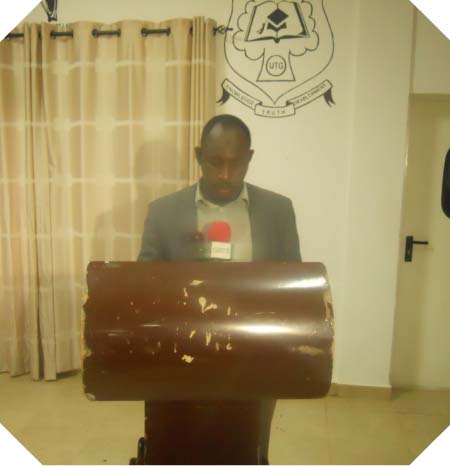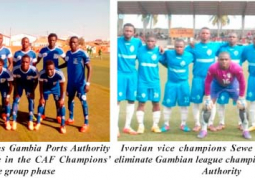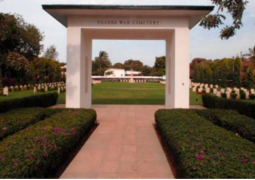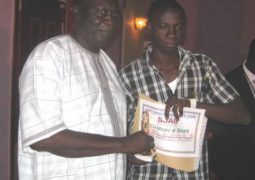
Ensa Touray, a prolific history lecturer at the University of The Gambia, on 25 July launched a historical documentary on the rise of the Futa imamate and the battle of Kansala.
Ensa, who lectures at the School of Arts and Sciences in Brikama, embarked on an adventurous journey to the native land of Guinea Conakry together with his team of socio-historical fact-finders to find concrete proofs about what led to the rise of the great Futa imamate and what transpired during the battle of Kansala.
Video evidence from the documentary shows that the Futa imamate was a great sovereignty which lasted over hundred years.
The imamate was vanquished at the battle of Kansala which was led by the great Mama Jankeh Wali Sanneh, the twelfth and last King of the Kaabu Empire, who was either killed or caused to commit suicide at the end of the battle.
The launching and premiere of the historical documentary which took place at the Law Faculty of the University of The Gambia was graced by the Permanent Secretary of the Ministry of Higher Education, Dr Cherno Omar Barry, who commended Mr Ensa Touray for “an excellent initiative” stating that Mr Touray has “given history and the history classes life and passion” since his arrival at the university.
Dr Pierre Gomez, the Dean of the School of Arts and Sciences also heaped praises on Mr Touray, describing him as “a man who is always on the move”.
He commended the work and pledged that the School of Arts and Sciences will continue to support the projects put forward by Mr Touray who in the past had worked on three other documentaries, namely Kombo before the colonial era, Ruins of Kansala (Kaabu Empire) and History of the fishing industry in the Kombo.
In his closing remarks, Ensa Touray stated that “this documentary is meant to showcase the potential of our ancestral history and to show that we in the Senegambian region were all interconnected before the advent of colonialism”.
He then thanked the Vice Chancellor of the University and the dean of Arts and Sciences, who he claimed “has never rejected my project proposals”.
Copies of the video documentary at the end of the programme went on sale for D100 per copy, with some individuals buying in large amounts.
Some of the copies will be kept at the Ministry of Higher Education and the National Museum of The Gambia for reference purposes.





